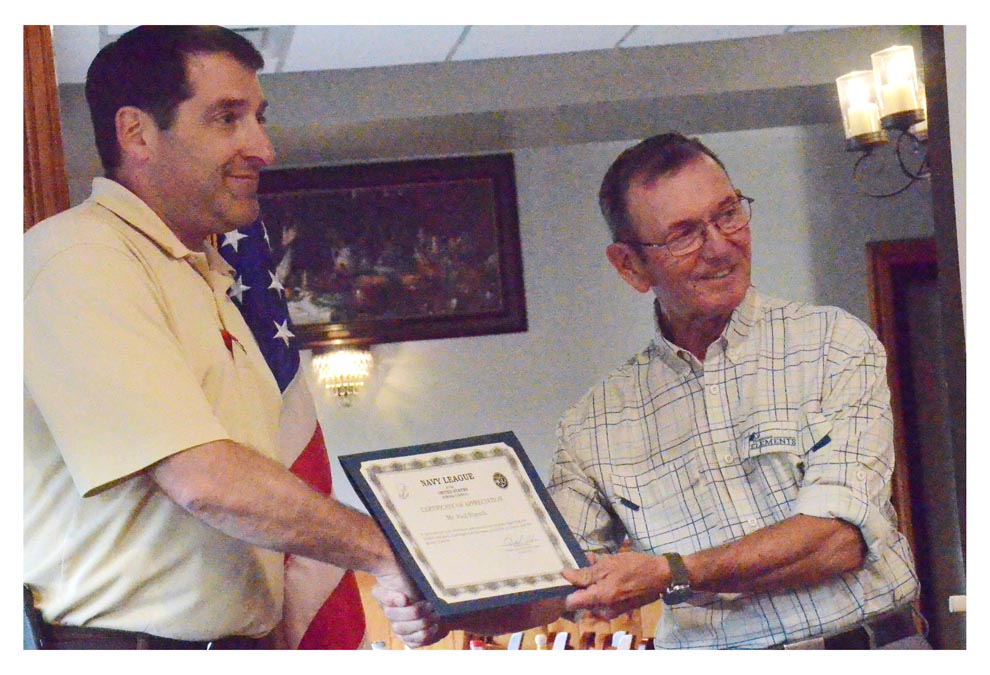From emergencies to long-term cleanups, Paul Ruesch has seen it all.

Ruesch, a U.S. Environmental Protection Agency Region 5 on-scene coordinator, recounted some of his adventures when he addressed the Aurora Navy League Council 247 audience at Riverview Diner in Montgomery. Region 5 includes Illinois, Wisconsin, Indiana, Michigan, and Ohio. While explaining that he is on call 24/7/365, the coordinator took a call regarding an Oswego natural gas leak during his speech.
“Sometimes I’m out there with a shovel,” Ruesch said. He emphasized that he most often is responsible for hiring private contractors for cleanups. He is among 37 coordinators based in Chicago while others are in Collinsville.
Ruesch presented an overview of EPA’s emergency response, capabilities and process under the Comprehensive Environmental Response, Compensation and Liability Act (Superfund) and Clean Water Act programs. He said he works time-critical removal sites and emergency responses including oil spills, chemical fires and train derailments.
Case studies he cited included the January Carus, LLC, chemical plant fire in LaSalle. U.S. EPA coordinated with the U.S. Coast Guard, La Salle County EMA, IEPA and the local fire department.
According to Ruesch, U.S. EPA is gearing up to work the Republican National Convention in July at Milwaukee and the August Democratic Convention in Chicago.
In addition to stationary air-quality monitors, coordinators have access to an airplane and a self-contained mobile laboratory capable of real-time sampling and analysis with chromatograph and spectrometry technology he said.
Ruesch said EPA’s mission includes working to ensure that:
•Americans have clean air, land and water;
•National efforts to reduce environmental risks are based on the best available scientific information;
•Federal laws protecting human health and the environment are administered and enforced fairly, effectively and as Congress intended;
•Environmental stewardship is integral to U.S. policies concerning natural resources, human health, economic growth, energy, transportation, agriculture, industry, and international trade, and these factors are similarly considered in establishing environmental policy;
•All parts of society–communities, individuals, businesses, and state, local and tribal governments–have access to accurate information sufficient to effectively participate in managing human health and environmental risks;
•Contaminated lands and toxic sites are cleaned up by potentially responsible parties and revitalized; and
•Chemicals in the marketplace are reviewed for safety.
—Al Benson

